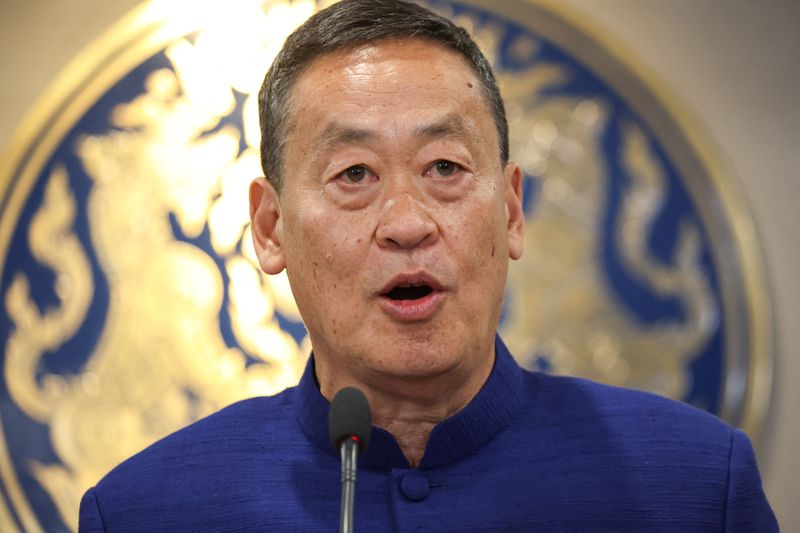Select Language

BANGKOK (Reuters) - Thailand's government has scaled down only slightly its signature handout policy, its prime minister said on Friday, despite growing concerns over its viability and potentially negative impact on Southeast Asia's second-largest economy.
The government has decided to reduce the overall "digital wallet" amount to 500 billion baht ($13.98 billion), with the scheme available to 50 million citizens to spend in their local areas within six months, premier Srettha Thavisin told a press briefing.
The ruling Pheu Thai Party's controversial policy was initially set at 560 billion baht ($15.66 billion) to be given to the majority of Thais, at 10,000 baht each, to stimulate a sluggish economy.
The government had been expected to make a bigger reduction in the scale of the project, after warnings from economists and some former central bankers that it could be fiscally problematic and further stoke inflation.
The scheme's value is equivalent to about 3% of gross domestic product (GDP).
The decision came after a meeting to consider reducing its scope to apply to certain groups for people. The plan will be implemented next year, but no exact timeframe was given.
Srettha has been in power for two months and is pursuing policies to cut living costs, control household debt and jumpstart the economy through measures to boost tourism, a key driver of growth while exports struggle from weak global demand.
Last month, central bank Governor Sethaput Suthiwartnarueput said the bank's growth forecast of 4.4% in 2024 would be lowered if the handout plan was reduced.
The finance ministry predicts growth of 3.2% in 2024, excluding the effect of the scheme.
($1 = 35.76 baht)

